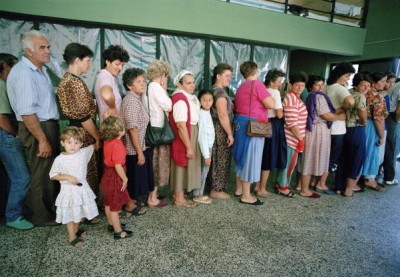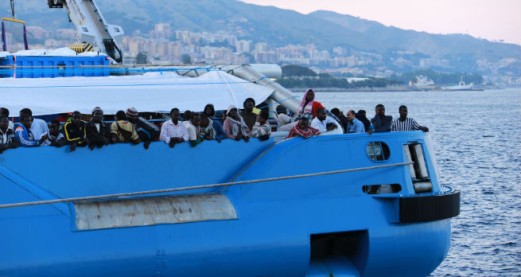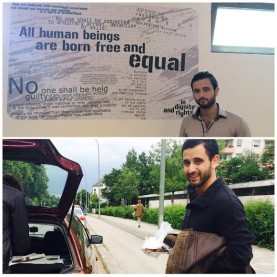It is commendable that David Cameron has promised to take decisive action to deal with the thousands of people fleeing Syria.
His plan to resettle 20,000 of these people over the next five years is to be welcomed – as is his decision to prioritise vulnerable children. It is, after all, a substantially improved stance. Not long ago, Cameron was dismissing the desperate attempts by migrants to cross from Calais to the UK as “unacceptable”. Until very recently, his sole emphasis was on blaming migrants and on fortifying Britain.

Cameron is also right to argue for a “comprehensive approach that tackles the causes of the problem as well as the consequences”, using both “head and heart”. Unfortunately, the approach he has actually presented falls short of this lofty aim.
Behind the headline
To begin with, Cameron continues to make an outdated distinction between “economic migrants” and “refugees fleeing conflict”. The implication is that the latter deserve help while the former should be sent back to where they came from.
This distinction fails to grasp the complexities of current situations. People need to flee unsustainable living conditions whether they are related to political factors or conflicts of a more fundamental nature. If this crisis has taught us anything, it should be that we need new definitions for what it means to be in need of international help.
What’s more, Cameron gave no detail whatsoever about his plan. The voting public may be pleased to hear his big numbers but no mention was made of what will actually happen when these 20,000 people arrive in the UK. A truly comprehensive approach would include specifics on the conditions of their reception and a plan for how they would be helped to integrate into their new homes.
A lot more needs to be done to raise standards and improve the resources available to the services that make all this happen. We should also not underestimate the importance of addressing the psychological implications of such population transplants – for both the new arrivals as well as the communities that receive them.
It was unfortunate that Cameron chose to cover the subject of “national security” as he announced his plan for the refugees. The British public had been calling for the prime minister to speak about the migrant crisis for days. In the event, the larger part of his statement was about the government’s achievements in counter-terrorism. And after the fact, the headline news was not the fate of 20,000 Syrians, but two British men who had been killed by a drone strike while fighting for Islamic State in Syria.
This was clearly a deliberate move. Implying that terrorism is the main cause of this crisis of involuntary dislocation is inappropriate.
Beyond the headcount
Cameron is not the only one to play the numbers game though. Some of his critics are already arguing that the UK should be taking more and that a commitment over five long years is not bold enough. But comparing countries is meaningless.
Each nation can boast about certain figures in relation to this crisis. Greece receives more migrants entering their territory than any other European country, Germany will accept the highest number of resettled people, Italy is rescuing the most migrants from the Mediterranean.
Instead of rivalrous claims, we need to cultivate the spirit of collaboration and mutual respect and revise outdated European and international conventions that address such phenomena. Countries should contribute to the formulation of a new framework for addressing the complexities of these phenomena – not only at a European level but also internationally.
Simplified formulae have failed. What is required is the courage to avoid slogans and collaborate widely to develop a multipronged approach that takes in the economic, psychological, educational, historical and spiritual issues raised by forced migration.
“A dog is for life, not just for Christmas”, proclaims the familiar car-bumper sticker. Accepting refugees and migrants into one’s country is not an analgesic against an ephemeral bout of remorse – and it should not be used by governments to temporarily appease their electorates.![]()
This article was originally published on The Conversation. Read the original article.





Rate and Review
Rate this article
Review this article
Log into OpenLearn to leave reviews and join in the conversation.
Article reviews